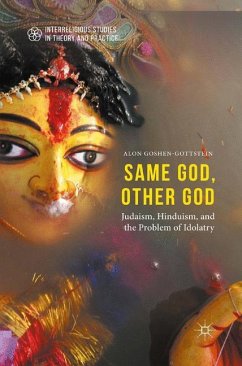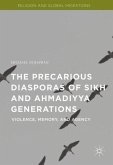Jews often consider Hinduism to be Avoda Zara, idolatry, due to its worship of images and multiple gods. Closer study of Hinduism and of recent Jewish attitudes to it suggests the problem is far more complex. In the process of considering Hinduism's status as Avoda Zara, this book revisits the fundamental definitions of Avoda Zara and asks how we use the category. By appealing to the history of Judaism's view of Christianity, author Alon Goshen-Gottstein seeks to define what Avoda Zara is and how one might recognize the same God in different religions, despite legal definitions. Through a series of leading questions, the discussion moves from a blanket view of Hinduism as idolatry to a recognition that all religions have aspects that are idolatrous and non-idolatrous. Goshen-Gottstein explains how the category of idolatry itself must be viewed with more nuance. Introducing this nuance, he asserts, leads one away from a globalized view of an entire tradition in these terms.
"The book provides an outstanding treatment of medieval Jewish definitions of avodah zarah found in halakhic works, biblical and talmudic commentary, and philosophical writings. ... Readers from many disciplines will find it both useful and accessible, as will many readers outside the academy." (Benjamin D, Sommer, The Journal of Religion, Vol. 99 (3), 2019)
"G. has done a wonderful job in learning Hinduism by reading widely, and by the fruits of his many friendships and contacts. ... For those of us unfamiliar with rabbinic ways of thinking, G.'s book is eye-opening, as new ways of engaging the religions of Asia suddenly emerge. Christian theologians of religions can be grateful too, relieved of the burden of thinking that all the intellectual work of understanding pluralism is ours to do." (Francis X. Clooney, SJ, Theological Studies, Vol. 78 (2), June, 2017)
"G. has done a wonderful job in learning Hinduism by reading widely, and by the fruits of his many friendships and contacts. ... For those of us unfamiliar with rabbinic ways of thinking, G.'s book is eye-opening, as new ways of engaging the religions of Asia suddenly emerge. Christian theologians of religions can be grateful too, relieved of the burden of thinking that all the intellectual work of understanding pluralism is ours to do." (Francis X. Clooney, SJ, Theological Studies, Vol. 78 (2), June, 2017)








